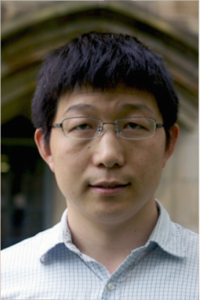Junior Faculty Spotlight: Guojun Wang

Each month, the CFT Newsletter highlights the work of our Junior Faculty Teaching Fellows. This month, Guojun Wang, Asian Studies, talks about his teaching philosophy and interests.
As a scholar, I mainly study late imperial Chinese literature and culture. At Vanderbilt, I teach an array of subjects related to Chinese literature. The courses I offer cover both the pre-modern and modern periods in Chinese history (36 centuries), and involve Chinese literature in all its principle genres. Using literature as a lens, I lead students to explore such themes as self and society, gender and writing, and romance and violence. I have two primary goals in teaching: to broaden students’ experiences by learning about China (from the mainland to the diasporic communities), and to improve their abilities to read, to think, to express, and to communicate.
I first highlight close reading as the main way to bring students closer to literary texts. In class, I guide students’ attention to the details, fissures, and paradoxes in the readings. I then try to place the texts in the historical contexts and introduce major social issues the texts illustrate. Analytical writing is another focus of my teaching. I have used online posting, response essays, research papers, and other formats to help students generate ideas and express them in writing. I also ask students to participate in multimedia activities such as interactive maps, timelines, and instant surveys to approach literature in diversified ways.
I consider my classroom as a space for me and my students to explore together. For that purpose, I give students ample opportunities to communicate with each other through group work, leading the discussion, and different types of presentations. As my students and I have together discovered, Chinese literature is not far away from Vanderbilt campus. Instead, we frequently notice connections between what we read and what is going on around us.
In the past decade, I have taught in the impoverished communities in southwest China, schools for the children of migrant workers in Beijing, and elite institutions in the States. I have worked with students speaking different languages, of different ethnicities, and from various social backgrounds. I hold the belief that teaching is a way of communication, one between me, my students, and the ever fresh voices in Chinese literature.

Leave a Response